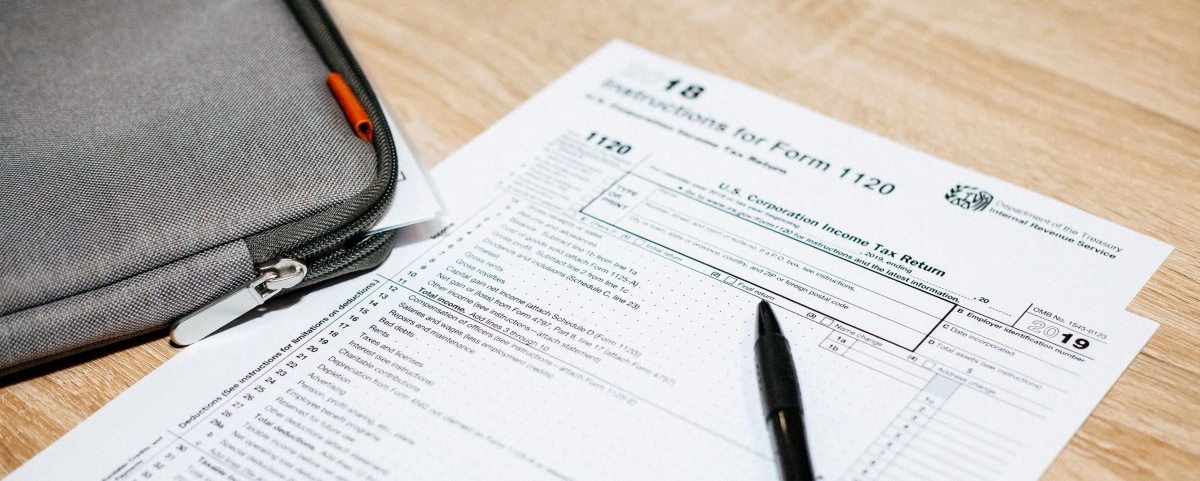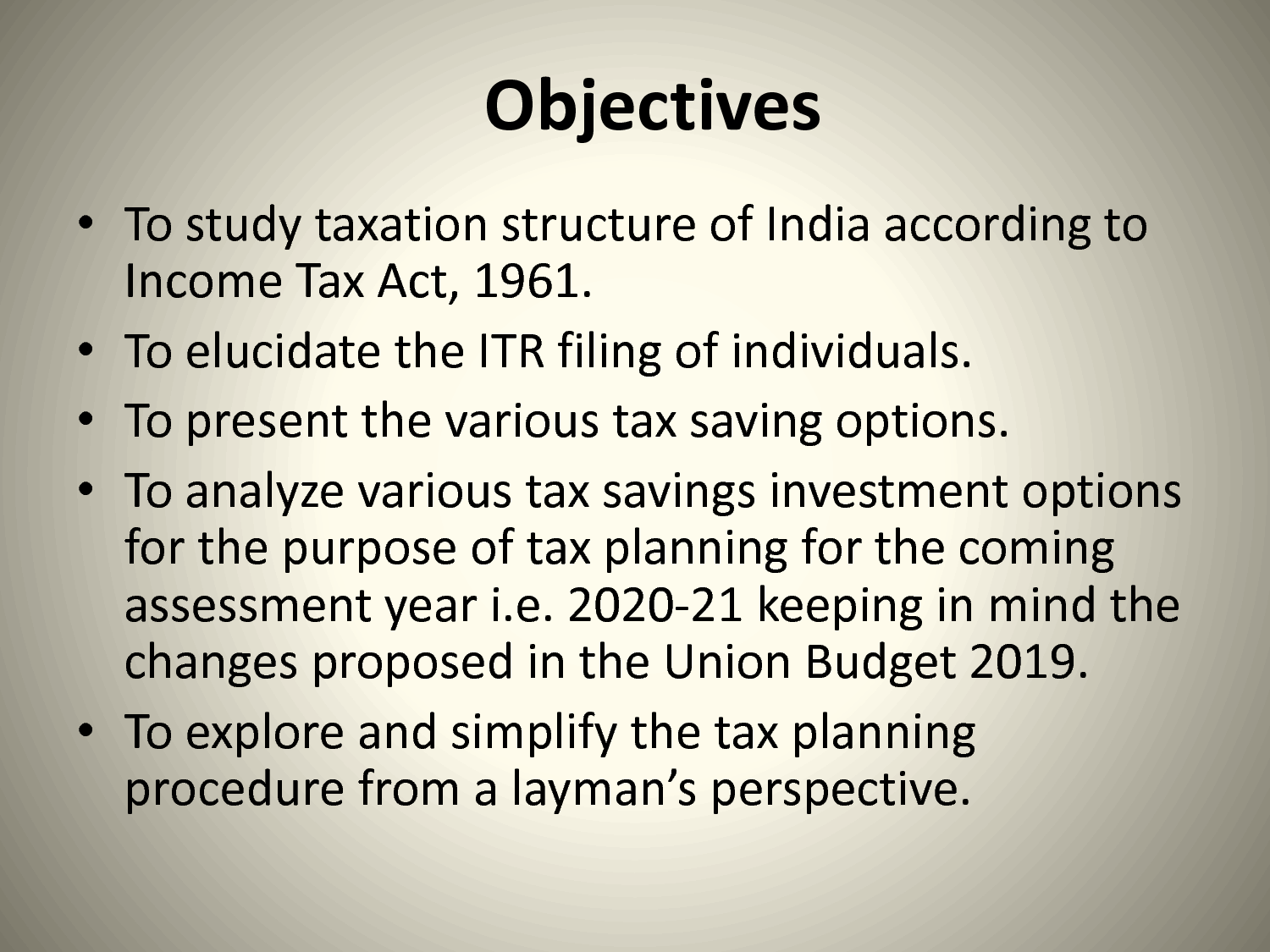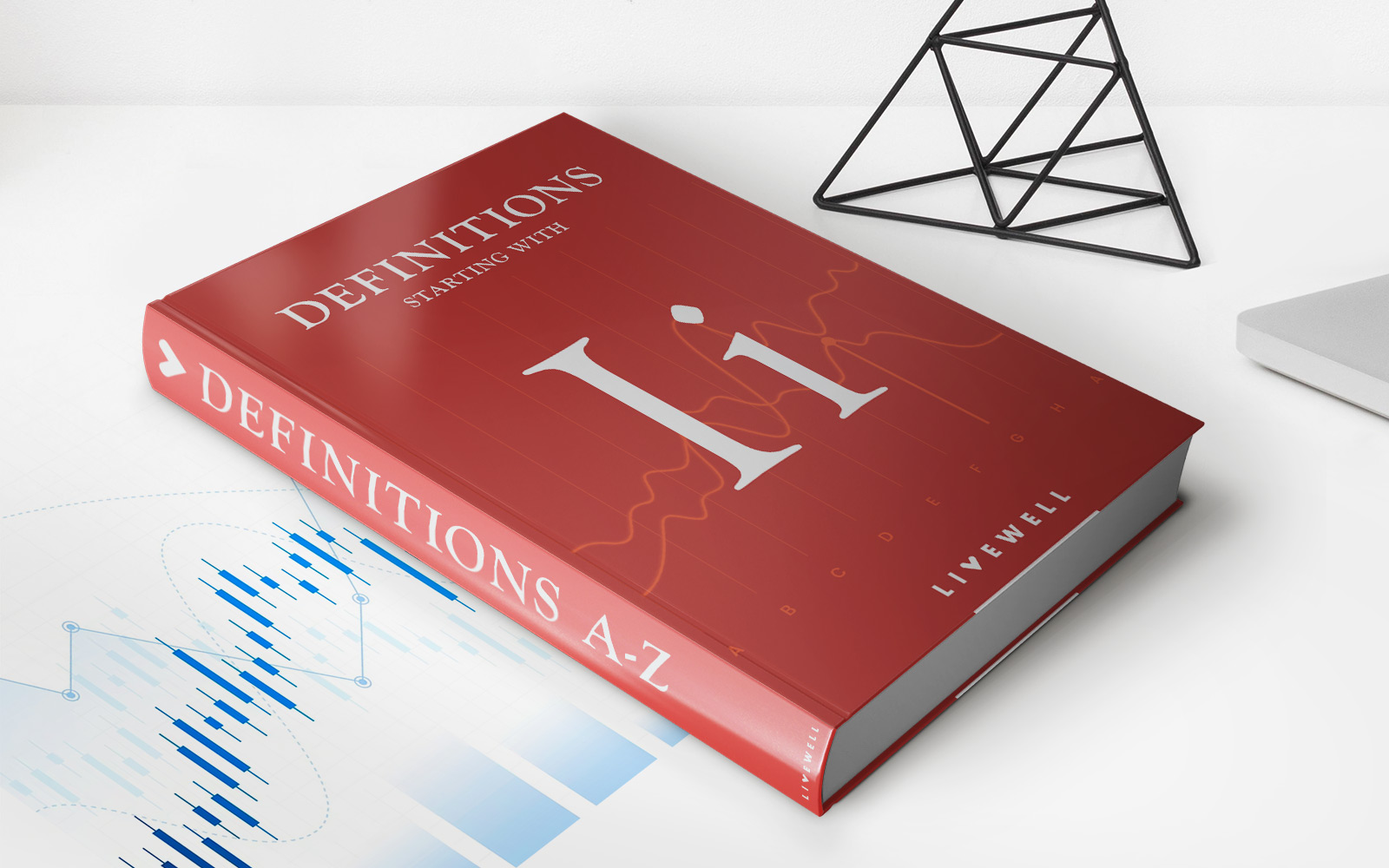Home>Finance>What Happens To Your Tax Liability With Proper Financial Planning?


Finance
What Happens To Your Tax Liability With Proper Financial Planning?
Modified: January 20, 2024
Manage your tax liability effectively with proper financial planning. Learn how to optimize your finances and reduce tax burden with expert advice in finance.
(Many of the links in this article redirect to a specific reviewed product. Your purchase of these products through affiliate links helps to generate commission for LiveWell, at no extra cost. Learn more)
Table of Contents
Introduction
Welcome to the world of financial planning, where making smart choices today can lead to a brighter financial future. One important aspect of financial planning is understanding your tax liability and how it can impact your overall financial well-being. In this article, we will explore the significance of proper financial planning in managing your tax liability and how it can help you achieve your financial goals.
Financial planning is the process of creating a roadmap to achieve your short-term and long-term financial objectives. It involves analyzing your current financial situation, setting achievable goals, and formulating strategies to reach those goals. While financial planning encompasses various areas such as budgeting, investing, and retirement planning, understanding and managing your tax liability is a crucial part of the puzzle.
What is tax liability? Put simply, it refers to the amount of taxes you owe to the government based on your income, investments, and other financial transactions. Taxes play a vital role in funding public services and infrastructure, and it is every citizen’s responsibility to fulfill their tax obligation. However, with proper financial planning, you can minimize your tax liability and retain more of your hard-earned money.
The benefits of proper financial planning extend beyond just reducing your tax liability. It empowers you to take control of your finances, make informed decisions, and work towards achieving financial security. A well-designed financial plan takes into account your income, expenses, debts, and long-term goals. It helps you allocate your resources effectively, save for emergencies and retirement, and protect your assets. In addition, a comprehensive financial plan can provide a roadmap for making major life decisions such as buying a home, starting a business, or funding your children’s education.
Now, let’s explore how proper financial planning can help you minimize your tax liability and make the most of your financial resources.
Importance of Financial Planning
Financial planning is a critical component of achieving financial stability and success. It helps individuals and families make informed decisions about their money, set financial goals, and create a roadmap to achieve those goals. Here are a few key reasons why financial planning is important:
-
Goal Setting:
Financial planning allows you to set both short-term and long-term financial goals. Whether you want to buy a house, save for your children’s education, or retire comfortably, having a clear set of goals helps you stay focused and motivated. Financial planning helps you prioritize your goals, allocate your resources accordingly, and take the necessary steps to achieve them.
-
Improved Cash Flow Management:
One of the fundamental aspects of financial planning is creating a budget. By tracking your income and expenses, you gain a better understanding of your cash flow and identify areas where you can reduce unnecessary spending or increase savings. Financial planning helps you optimize your cash flow and ensure that you have enough funds to cover your expenses, pay down debt, and save for the future.
-
Emergency Preparedness:
Life is unpredictable, and unexpected events such as medical emergencies, job loss, or natural disasters can have a significant impact on your finances. Financial planning helps you build an emergency fund to protect yourself and your family during challenging times. By setting aside a portion of your income for emergencies, you have a financial safety net to fall back on, reducing the need to rely on credit cards or loans.
-
Debt Management:
Many individuals carry various types of debt, such as mortgages, student loans, or credit card debt. Financial planning helps you evaluate your debt situation and develop a strategy to pay off your debts efficiently. By reducing and eliminating high-interest debts, you can free up more money for savings and investments.
-
Investment Planning:
Investing is a key component of long-term wealth building. Through financial planning, you can assess your risk tolerance, identify suitable investment opportunities, and develop an investment strategy aligned with your goals. Proper investment planning ensures that you maximize your returns, build a diversified portfolio, and work towards achieving financial freedom.
Overall, financial planning provides a roadmap for your financial journey. By creating a comprehensive plan tailored to your unique circumstances and objectives, you can make informed decisions, minimize financial risks, and work towards a secure and prosperous future.
Understanding Tax Liability
Before delving into the ways to manage your tax liability through financial planning, it is crucial to understand what tax liability entails. Tax liability refers to the amount of tax that an individual or entity is legally obligated to pay to the government based on their income, investments, and other taxable activities. Tax laws vary from country to country, and in some cases, even within different regions or states. Therefore, it is essential to have a good understanding of the tax regulations applicable to your specific jurisdiction.
Tax liability can be influenced by several factors, such as:
-
Income:
The type and amount of income you earn have a significant impact on your tax liability. Different sources of income may be subject to different tax rates. For example, earned income from employment is typically taxed at progressive rates, meaning higher income is taxed at a higher rate. On the other hand, investment income, such as dividends or capital gains, may be subject to separate tax rates or regulations.
-
Deductions and Credits:
Tax deductions and credits can help reduce your overall tax liability. Deductions lower your taxable income by subtracting eligible expenses or contributions. Common deductions include mortgage interest, student loan interest, and charitable donations. Tax credits, on the other hand, directly reduce the amount of tax you owe. Examples of tax credits include child tax credits or education credits.
-
Filing Status:
Your filing status, such as single, married filing jointly, or head of household, can impact your tax liability. Married couples filing jointly may have different tax rates and deductions compared to individuals filing as single or head of household.
-
Tax Laws and Regulations:
Tax laws and regulations are subject to change, and it is essential to stay informed about any updates or amendments. Tax planning is crucial to ensure compliance with the current laws and maximize any potential benefits or deductions available to you.
Managing your tax liability requires careful planning and strategizing. With proper financial planning, you can take advantage of available deductions, credits, and tax-efficient investment strategies to minimize your tax burden.
Now that we have a clear understanding of tax liability, let’s explore the benefits of incorporating financial planning into your tax strategy.
Benefits of Proper Financial Planning
Proper financial planning offers a multitude of benefits that go beyond just managing your tax liability. Here are some key advantages of incorporating financial planning into your overall financial strategy:
-
Clarity and Direction:
Financial planning provides you with a clear roadmap for your financial future. It helps you define your goals, whether it’s saving for a home, funding your children’s education, or retiring comfortably. Having a specific target in mind allows you to make informed financial decisions and stay focused on achieving your objectives.
-
Financial Security:
One key benefit of financial planning is the attainment of financial security. By implementing strategies to protect your assets and build a safety net, you can be confident in your ability to weather unexpected financial emergencies or life events. This includes having adequate insurance coverage, creating an emergency fund, and establishing a plan for retirement.
-
Growth and Wealth Accumulation:
Financial planning is essential for wealth accumulation and long-term financial growth. By strategically managing your income, expenses, and investments, you can optimize your financial resources and maximize your wealth-building potential. This may involve diversifying your investment portfolio, identifying tax-efficient investment strategies, and taking advantage of compounding returns over time.
-
Debt Management:
Proper financial planning allows you to effectively manage your debts and reduce financial stress. By creating a plan to pay off high-interest debts and avoid unnecessary borrowing, you can improve your credit score and free up more funds for savings and investments. Financial planning helps you develop a sensible repayment strategy and make progress towards becoming debt-free.
-
Improved Decision-Making:
Financial planning provides you with the necessary tools and information to make better financial decisions. With a comprehensive understanding of your financial situation, you can evaluate the potential risks and benefits of different options before making important financial choices. This includes major purchases, investment decisions, or career changes.
-
Legacy Planning:
Financial planning allows you to create a lasting impact and plan for your legacy. By incorporating estate planning and wealth transfer strategies into your financial plan, you can ensure that your assets are distributed according to your wishes and minimize the tax implications for your heirs. Legacy planning helps protect your wealth for future generations.
Overall, proper financial planning brings clarity, security, and a sense of control over your financial future. By aligning your financial goals with effective strategies, you can navigate through life’s challenges and build a solid foundation for long-term financial success.
Reducing Tax Liability through Financial Planning
One of the key advantages of incorporating financial planning into your overall financial strategy is the ability to proactively manage and reduce your tax liability. By implementing various strategies, you can optimize your tax situation and potentially save a significant amount of money. Here are some effective ways to minimize your tax liability through financial planning:
-
Maximize Tax-Advantaged Accounts:
Take advantage of tax-advantaged accounts such as Individual Retirement Accounts (IRAs) or 401(k) plans offered by employers. Contributions to these accounts are often tax-deductible, allowing you to lower your taxable income while simultaneously saving for retirement.
-
Utilize Tax Deductions and Credits:
Identify and utilize tax deductions and credits available to you. Deductions, such as mortgage interest, student loan interest, or contributions to qualified charities, can reduce your taxable income. Tax credits, such as the Child Tax Credit or the Lifetime Learning Credit, directly reduce the amount of tax you owe.
-
Strategic Asset Allocation:
Consider strategic asset allocation to minimize the impact of taxes on your investments. By strategically allocating your assets across taxable, tax-deferred, and tax-free accounts, you can potentially reduce the overall tax burden on your investment income. This includes structuring your investment portfolio to take advantage of tax-efficient investments.
-
Tax-Loss Harvesting:
Implement tax-loss harvesting to offset taxable gains. This strategy involves selling investments that have experienced a loss to offset any capital gains and potentially reduce your overall tax liability. It’s important to consult with a financial advisor or tax professional to ensure you navigate this strategy within the parameters of tax regulations.
-
Charitable Giving:
Consider donating to charitable organizations as a way to reduce your taxable income. Contributions to eligible charities are typically tax-deductible, providing you with a potential tax benefit while supporting a cause you believe in.
-
Estate Planning:
Incorporate estate planning into your financial strategy to minimize the tax implications of transferring your wealth to future generations. Proper estate planning, including creating trusts or establishing a gifting strategy, can help mitigate estate taxes and ensure that your assets are distributed according to your wishes.
These are just a few examples of how financial planning can help you reduce your tax liability. It’s crucial to consult with a qualified financial advisor or tax professional to develop a personalized plan that takes into account your specific financial situation and objectives. By proactively managing your tax liability through financial planning, you can optimize your financial resources and keep more of your hard-earned money for future goals and aspirations.
Strategies for Minimizing Tax Liability
When it comes to minimizing your tax liability, implementing effective strategies is key. By utilizing various techniques and taking advantage of available tax-saving opportunities, you can significantly reduce the amount of taxes you owe. Here are some strategies for minimizing your tax liability:
-
1. Tax Planning:
Tax planning involves strategically analyzing your financial situation to identify potential deductions, credits, and exemptions that can lower your tax liability. By understanding the tax laws and regulations applicable to your circumstances, you can make informed decisions throughout the year to optimize your tax situation.
-
2. Retirement Contributions:
Contributing to retirement accounts such as IRAs, 401(k)s, or SEP IRAs can have significant tax advantages. Not only do contributions to these accounts help you save for retirement, but they also allow you to lower your taxable income, reducing your overall tax liability. Take full advantage of employer-sponsored retirement plans and explore IRA options to maximize your retirement contributions.
-
3. Capital Gains and Losses:
Strategically managing your capital gains and losses can help minimize your tax liability. By timing the sale of investments to offset capital gains with capital losses, you can potentially reduce your taxable income. Consider utilizing tax-efficient investment strategies such as tax-loss harvesting to optimize your portfolio’s tax implications.
-
4. Tax-efficient Investments:
Choose investments that are tax-efficient, such as index funds or tax-managed mutual funds, which generate less taxable income than actively managed funds. Additionally, prioritize tax-advantaged accounts like Roth IRAs or Health Savings Accounts (HSAs), which provide the opportunity for tax-free growth or withdrawals.
-
5. Itemize Deductions:
If your itemized deductions exceed the standard deduction, consider itemizing deductions on your tax return. This allows you to deduct eligible expenses such as mortgage interest, property taxes, state and local taxes, certain medical expenses, and charitable contributions, potentially reducing your taxable income.
-
6. Health Savings Accounts (HSAs):
If you have a high-deductible health insurance plan, consider contributing to a Health Savings Account (HSA). HSAs offer a triple tax advantage – contributions are tax-deductible, earnings grow tax-free, and withdrawals for eligible medical expenses are tax-free.
-
7. Education-related Tax Benefits:
Take advantage of education-related tax benefits like the American Opportunity Credit or the Lifetime Learning Credit. These credits can help reduce your tax liability if you or your dependents are pursuing higher education.
-
8. Charitable Donations:
Make charitable donations to qualified organizations to not only support causes you care about but also potentially reduce your tax liability. Keep records of your donations to claim deductions on your tax return.
It is important to note that while these strategies can help minimize your tax liability, it’s crucial to consult with a certified tax professional or financial advisor who can provide personalized advice based on your specific circumstances. They can help you navigate the complex tax laws, identify additional opportunities, and ensure that you are taking full advantage of available tax-saving strategies.
By combining proper tax planning, informed decision-making, and strategic financial management, you can effectively minimize your tax liability and maximize your financial resources.
Conclusion
Proper financial planning plays a crucial role in managing your tax liability and achieving your long-term financial goals. By understanding the complexities of tax laws, strategically utilizing available deductions and credits, and implementing tax-efficient strategies, you can minimize your tax burden and retain more of your hard-earned money.
Financial planning not only helps you reduce your tax liability but also provides numerous other benefits. It allows you to set clear financial goals, improve cash flow management, and protect your assets. It empowers you to make informed decisions about saving, investing, and managing debt.
By taking advantage of tax-advantaged accounts, maximizing deductions and credits, strategically allocating your assets, and engaging in tax-efficient investments, you can significantly impact your tax situation. Additionally, consider incorporating charitable giving into your financial plan and exploring estate planning strategies to minimize taxes on wealth transfer.
It’s important to remember that each individual’s financial situation is unique, and what works for one person may not be suitable for another. Consulting with a certified financial advisor or tax professional is vital to develop a tailored financial plan that aligns with your goals, resources, and legal obligations.
In conclusion, through proper financial planning and proactive tax management, you can optimize your financial resources, reduce your tax liability, and pave the way for a secure and prosperous financial future.














